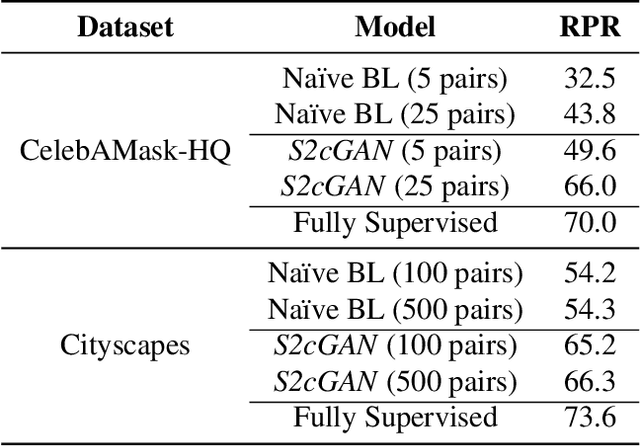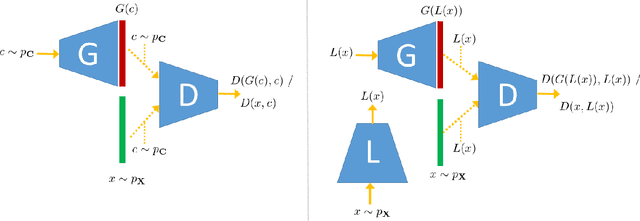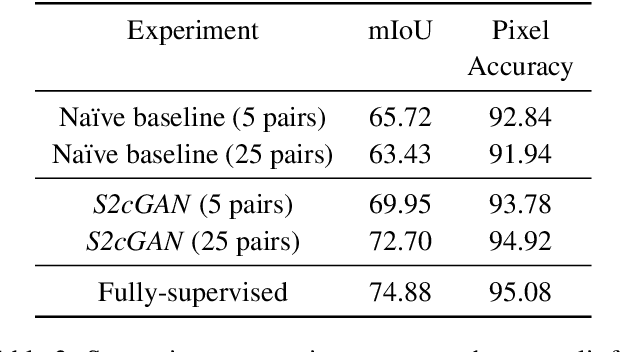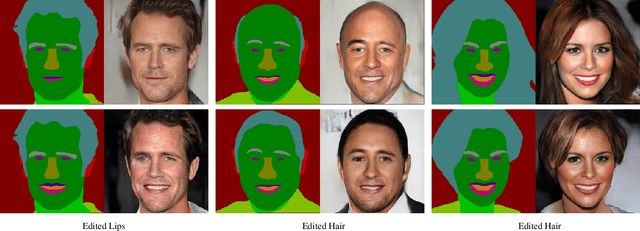S2cGAN: Semi-Supervised Training of Conditional GANs with Fewer Labels
Paper and Code
Oct 23, 2020



Generative adversarial networks (GANs) have been remarkably successful in learning complex high dimensional real word distributions and generating realistic samples. However, they provide limited control over the generation process. Conditional GANs (cGANs) provide a mechanism to control the generation process by conditioning the output on a user defined input. Although training GANs requires only unsupervised data, training cGANs requires labelled data which can be very expensive to obtain. We propose a framework for semi-supervised training of cGANs which utilizes sparse labels to learn the conditional mapping, and at the same time leverages a large amount of unsupervised data to learn the unconditional distribution. We demonstrate effectiveness of our method on multiple datasets and different conditional tasks.
 Add to Chrome
Add to Chrome Add to Firefox
Add to Firefox Add to Edge
Add to Edge